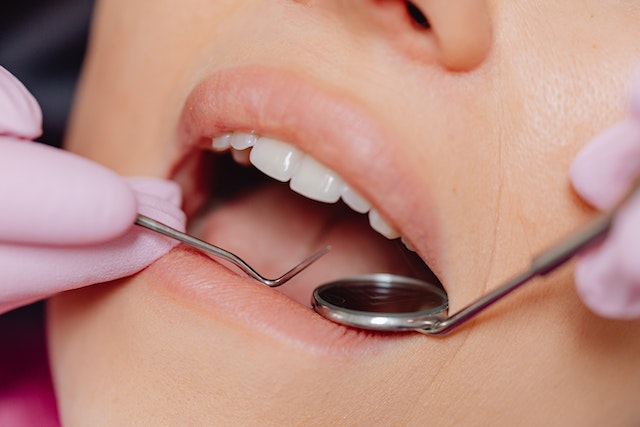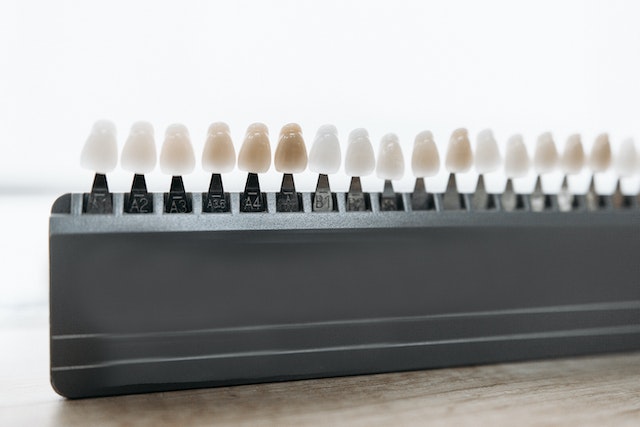Veneers are a popular cosmetic dental treatment that can transform a person’s smile. They are thin, custom-made shells that are placed over the front of a tooth to improve its appearance. Veneers can be used to correct a variety of dental issues, including discoloration, chips, and gaps between teeth. The price of veneers will vary from around $500 to $2500 per tooth.
Understanding the cost of veneers is an important consideration for anyone considering this treatment. The cost of veneers can vary depending on a number of factors, including the number of teeth being treated, the type of veneers being used, and the location of the dental practice. It is important to consult with a qualified dental professional to determine the cost of veneers for your specific needs.
When it comes to veneers, it is important to understand the benefits and potential drawbacks of this cosmetic dental treatment. While veneers can provide a dramatic improvement in the appearance of a person’s smile, they do require some maintenance and may need to be replaced over time. By understanding the veneer procedure, cost, and maintenance requirements, individuals can make an informed decision about whether veneers are the right choice for them.
Key Takeaways
- Veneers are a cosmetic dental treatment that can correct a variety of dental issues.
- The cost of veneers can vary depending on several factors, including the number of teeth being treated and the type of veneers being used, but $500-2500 is a good estimate.
- While veneers can provide a dramatic improvement in the appearance of a person’s smile, they do require maintenance and may need to be replaced over time.
Understanding Veneers
Types of Veneers
Dental veneers are thin coverings that are placed over the front surface of teeth to improve their appearance. There are two main types of veneers: porcelain veneers and composite veneers.
Porcelain veneers are made of thin shells of porcelain that are custom-made to fit over the natural tooth enamel. They are more expensive than composite veneers but are more durable and resistant to stains.
Composite veneers, on the other hand, are made of a tooth-colored resin material that is bonded to the natural tooth enamel. They are less expensive than porcelain veneers but are not as durable and may need to be replaced more frequently.
Other types of veneers include Lumineers, no-prep veneers, snap-on veneers, and removable veneers. Lumineers are a type of porcelain veneer that requires minimal tooth preparation, while no-prep veneers are even thinner than traditional porcelain veneers and require no tooth preparation at all. Snap-on veneers and removable veneers are temporary options that can be removed at any time.
Purpose of Veneers
Veneers are a cosmetic procedure that can be used to improve the aesthetics of a person’s smile. They can be used to cover chips, cracks, stains, discoloration, gaps, and misshapen or crooked teeth. They can also be used to cover broken teeth or as part of a smile makeover.
Veneers are typically placed by a cosmetic dentist who specializes in cosmetic dentistry. The procedure involves removing a small amount of the natural tooth enamel to make room for the veneer. The veneer is then bonded to the natural tooth enamel using a special adhesive.
Overall, veneers are a popular cosmetic procedure that can improve the appearance of a person’s smile. They come in different types and can be used to address a variety of dental issues.
The Veneer Procedure
Initial Examination
Before getting veneers, a patient must schedule an appointment with a cosmetic dentist. During the initial examination, the dentist will evaluate the patient’s oral health and determine if veneers are a suitable option. The dentist may take x-rays to check for tooth decay, gum disease, cavities, or other oral health issues. If the patient has bruxism or jaw pain, the dentist may recommend other treatments before proceeding with veneers.
Preparation and Impression
Once the dentist determines that veneers are the right choice, the next step is tooth preparation. This involves removing a small amount of tooth enamel, usually less than half a millimeter, to create space for the veneers. The dentist will then take an impression of the teeth, which will be sent to a dental lab to create the veneers.
While the permanent veneers are being made, the patient will wear temporary veneers to protect the teeth and maintain the bite. The temporary veneers are made from a mold of the teeth and are usually made of acrylic.
Final Placement
Once the permanent veneers are ready, the patient will return to the dentist’s office for final placement. The dentist will remove the temporary veneers and clean the teeth to prepare them for bonding. The bonding agent is applied to the teeth, and the veneers are carefully placed and adjusted to ensure a perfect fit. A local anesthetic may be used during this process to minimize discomfort.
After the veneers are in place, the dentist will check the patient’s bite and make any necessary adjustments. The patient will be instructed on proper oral hygiene and care for the veneers, which can last for 10-15 years with proper maintenance.
Cost of Veneers
Veneers are a popular cosmetic dental treatment that can help improve the appearance of your teeth. They are thin, custom-made shells that are placed over the front surface of your teeth to cover imperfections and enhance their shape, size, and color. However, one of the most common questions asked by patients is how much do veneers cost?
Factors Influencing Cost
The cost of veneers can vary depending on a variety of factors. Some of the key factors that can influence the cost of veneers include:
- Location: The cost of veneers can vary depending on where you live. Generally, veneers tend to be more expensive in urban areas and less expensive in rural areas.
- Dental Health: If you have significant dental issues that need to be addressed before veneers can be placed, such as decay or gum disease, this can increase the overall cost of treatment.
- Number of Teeth: The more teeth you want to have veneered, the higher the total cost of treatment will be.
- Type of Veneers: There are different types of veneers available, such as porcelain and composite resin veneers. Porcelain veneers tend to be more expensive, but they are also more durable and long-lasting.
- Dental Savings Plans and Insurance: If you have dental insurance or a dental savings plan, this can help offset the cost of veneers. However, not all plans cover cosmetic treatments like veneers, so be sure to check with your provider.
Comparison with Other Dental Procedures
When considering the cost of veneers, it’s important to compare them to other dental procedures that can achieve similar results. For example, dental crowns and implants can also be used to improve the appearance of your teeth. Here is a comparison of the average cost of veneers with other common dental procedures:
| Treatment | Average Price |
|---|---|
| Veneers (per tooth) | $925 – $2,500 |
| Dental Crowns (per tooth) | $800 – $1,500 |
| Dental Implants (per tooth) | $1,500 – $6,000 |
| Root Canals (per tooth) | $700 – $1,000 |
| Dental Bonding (per tooth) | $300 – $600 |
Overall, the cost of veneers can vary depending on a variety of factors, but they can be a worthwhile investment for patients looking to improve the appearance of their teeth.
Maintenance and Longevity of Veneers
Caring for Your Veneers
Maintaining good oral hygiene is crucial for the longevity of veneers. Brushing twice a day and flossing once a day is recommended. Patients should also avoid hard candy and other hard foods that can damage the veneers. Additionally, patients should avoid using their teeth as tools to open packages or bite their nails.
Lifespan of Veneers
The lifespan of veneers can vary depending on the material used and how well they are maintained. Composite resin veneers typically last between 4-8 years, while porcelain veneers can last up to 15 years or more with proper care.
Potential Risks and Complications
While veneers are a conservative option to improve the appearance of anterior teeth, they do have some disadvantages. Veneers can be costly and may not be covered by insurance. Additionally, the process of placing veneers involves removing a small amount of natural tooth enamel, which can increase the risk of tooth decay and cavities. Patients with bruxism (teeth grinding) may also experience increased wear and tear on their veneers, leading to premature damage.
Overall, veneers are a durable and stain-resistant option for improving the appearance of front teeth. With good oral hygiene and regular maintenance, veneers can last for many years. However, patients should be aware of the potential risks and complications associated with the procedure.
Frequently Asked Questions
What is the average cost of veneers without insurance?
The average cost of veneers without insurance varies depending on the location, the dentist, and the type of veneers used. However, on average, patients can expect to pay between $800 and $2,500 per tooth.
What is the cost of veneers for front teeth?
The cost of veneers for front teeth is typically higher than for other teeth because they are more visible. On average, patients can expect to pay between $1,000 and $3,000 per tooth for front teeth veneers.
How much are porcelain veneers for a full mouth?
The cost of porcelain veneers for a full mouth can vary widely depending on the number of teeth that need veneers and the location of the dentist. On average, patients can expect to pay between $12,000 and $30,000 for a full mouth of porcelain veneers.
Are veneers worth the cost?
The answer to this question depends on the individual patient and their specific dental needs. Veneers can provide a long-lasting, natural-looking solution for a variety of dental issues, including chipped, stained, or misshapen teeth. However, the cost of veneers can be high, and patients should carefully consider their options before making a decision.
How long do veneers last?
With proper care, veneers can last for 10-15 years or more. However, the lifespan of veneers can vary depending on factors such as oral hygiene, diet, and habits like teeth grinding.
What are some affordable options for veneers?
Some affordable options for veneers include composite veneers, which are made of a tooth-colored resin material and typically cost less than porcelain veneers. Another option is to consider dental tourism, where patients travel to other countries to receive dental care at a lower cost. However, it is important to carefully research and consider the risks and benefits of these options before making a decision.





